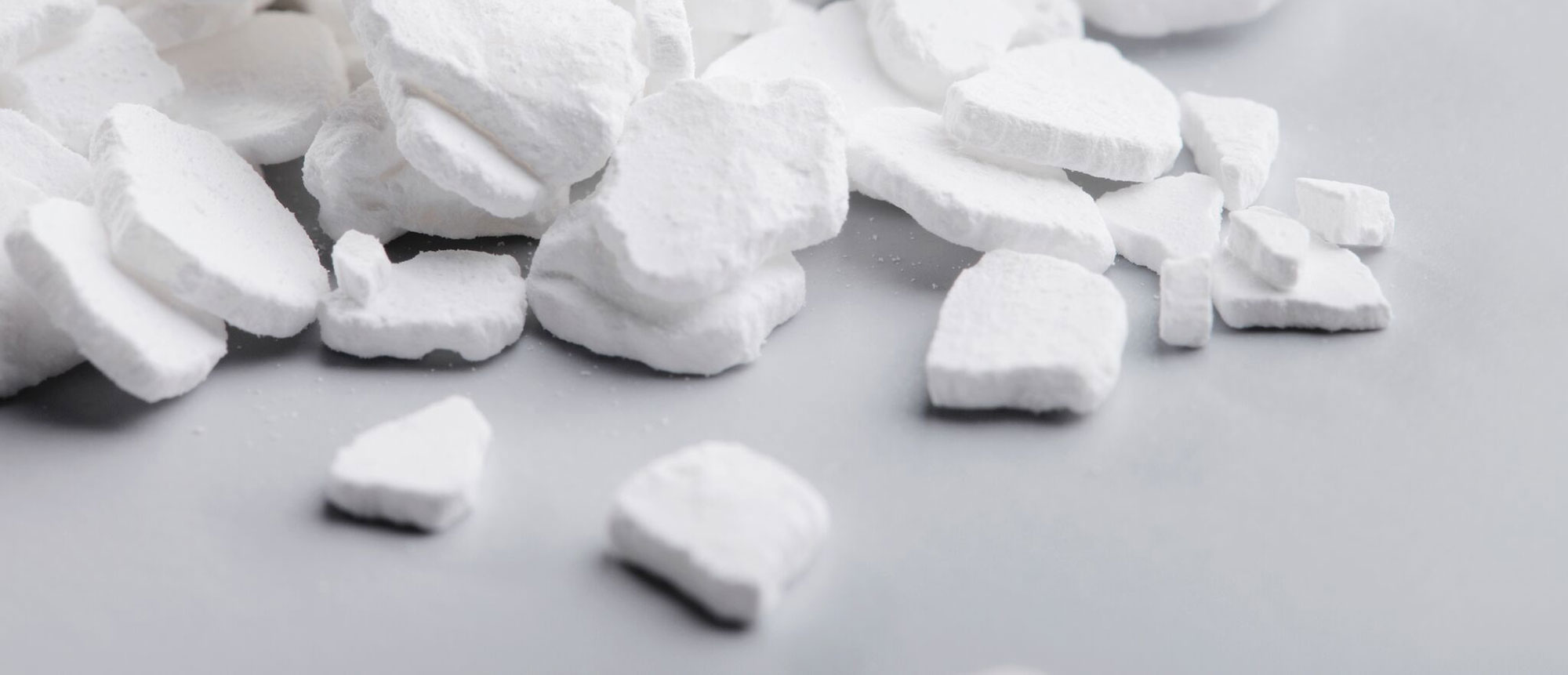
1. Basic Information:
Calcium chloride, a salt composed of chlorine and calcium elements, has the chemical formula CaCl2. It exists as colorless cubic crystals, appearing white or grayish-white, in granular, honeycomb block, spherical, irregular granule, or powder forms. It is slightly toxic, odorless, with a slightly bitter taste. It is a typical ionic halide, appearing as a white solid at room temperature. Highly hygroscopic, it readily deliquesces when exposed to air. Soluble in water, it releases a large amount of heat, resulting in a slightly alkaline solution. It is also soluble in alcohols and acetic acid. When reacting with ammonia or ethanol, it forms the complexes CaCl28NH3 and CaCl24C2H5OH, respectively.
2. Classification:
- Based on content: Anhydrous 94% and Dihydrate 74%.
- Based on usage: Industrial grade and food grade.
- Anhydrous forms: Granules, flakes (limited), powder, anhydrous prills (used for desiccant bags).
- Dihydrate forms: Granules, powder, flakes, dihydrate prills (used for dehumidifier boxes).
- Food-grade available in powder and flake forms.
- Packaging: Inner plastic, outer woven packaging; 25KG; typically neutral English packaging.
- Complies with the Chinese national standard GB/T26520-2011.
3. Anhydrous Calcium Chloride Physical and Chemical Properties:
- Colorless cubic crystals, white or grayish-white porous block or granular solid. Relative density of 2.15, melting point of 782°C, boiling point above 1600°C. Highly hygroscopic, readily deliquesces, soluble in water, releasing a large amount of heat. Odorless, with a slightly bitter taste, the aqueous solution is slightly acidic, and it is soluble in alcohols, propionic acid, and acetic acid.
- Product Uses: Precipitant in the production of color lake pigments. Desiccant in the production of nitrogen, acetylene, hydrogen, hydrogen chloride, oxygen, and other gases. Dehydration agent in the production of alcohols, ethers, esters, and acrylic acid resins. The aqueous solution serves as an important refrigerant in refrigeration and ice-making. Accelerates concrete curing, enhances the cold resistance of cement mortar, and is an excellent antifreeze agent. Used as a protective and refining agent in aluminum-magnesium metallurgy.
4. Applications:
- Petroleum drilling, drilling fluids, completion fluids, and dehydration fluids in the petrochemical industry.
- Desiccant for gases such as nitrogen, oxygen, hydrogen, hydrogen chloride, sulfur dioxide, etc.
- De-icing agent: Utilizes the melting and low freezing point properties of calcium chloride for road de-icing.
- Dehydration agent: Used in the production of alcohols, esters, ethers, and acrylic acid resins.
- Refrigerant: Calcium chloride solution is an essential refrigerant for refrigerators and ice-making.
- Antifreeze: Accelerates concrete curing and increases the cold resistance of construction mortar.
- Early strength agent: Used in the construction industry to increase concrete strength and as a coagulant in household coatings.
- Dust collector: Used as an anti-fogging and road dust collecting agent in ports.
- Refining agent: Used as a protective and refining agent in aluminum-magnesium metallurgy.
- Precipitant: Precipitant in the production of color lake pigments.
- Coagulant: Inorganic chemical raw material and sulfate removal agent in the chemical industry, sodium alginate production.
- Coagulant: Latex coagulant in the rubber industry.
- Used in the production of pigments and dyeing in the pigment and dye industry.
- Used in ink removal in the waste paper processing industry.
- Raw material for the production of calcium salts.
- In the food industry, used as a calcium fortifier, solidifier, chelating agent, and desiccant.
- In the aquaculture industry, used for calcium supplementation in aquatic organisms.
5. Regulations for the Addition of Food Calcium:
According to the “Food Safety Law of the People’s Republic of China” and the “Regulations on the Hygiene Management of Food Additives,” food-grade calcium chloride can be used as a stabilizer, coagulant, nutritional fortifier, and other purposes. Its application includes soy products, light cream, soft drinks, sweet juice and sauce, jam, formulated water, and food processing aids.
As a widely used food additive, calcium chloride in food industry applications generally serves the following purposes:
- Coagulation: It can coagulate certain foods, playing a coagulating role.
- Preservation: It stabilizes the freshness of food.
- Thickening: When added to beverages, it acts as a thickening agent.
- Nutrition: It enhances nutritional content.




